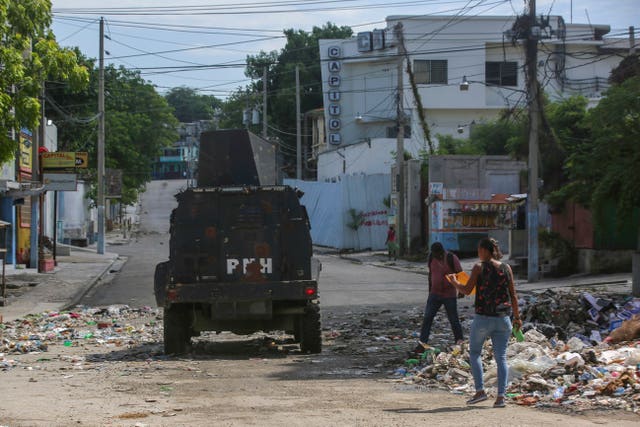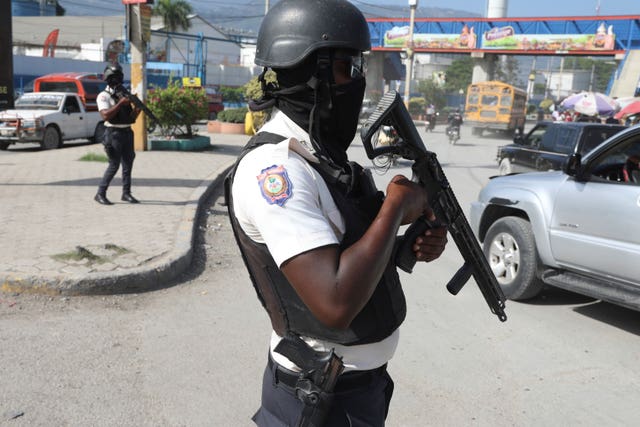The first UN-backed contingent of foreign police has arrived in Haiti, nearly two years after the troubled Caribbean country urgently requested help to quell a surge in gang violence.
Around 200 police officers from Kenya landed in the capital of Port-au-Prince, whose main international airport reopened in late May after gang violence forced it to close for nearly three months.
It was not immediately known what the Kenyans’ first assignment would be, but they will face violent gangs that control 80% of Haiti’s capital and have left more than 580,000 people across the country homeless as they pillage neighbourhoods in their quest to control more territory.

The Kenyans’ arrival marks the fourth major foreign military intervention in Haiti.
While some Haitians welcome their arrival, others view the force with caution, given that the previous intervention – the UN’s 2004-2017 peacekeeping mission – was marred by allegations of sexual assault and the introduction of cholera.
The Kenyans’ deployment comes nearly four months after gangs launched coordinated attacks targeting key government infrastructure in Haiti’s capital and beyond. They seized control of more than two dozen police stations, fired on the main international airport and stormed Haiti’s two biggest prisons, releasing more than 4,000 inmates.
Critics say the coordinated gang attacks that began on February 29 could have been prevented if the foreign force had been deployed sooner, but multiple setbacks including a legal challenge filed in Kenya and political upheaval in Haiti delayed its arrival.
The coordinated attacks achieved their objective: preventing then-Prime Minister Ariel Henry from returning to Haiti.
At the time, he was in Kenya to push for the deployment of the force, but he resigned in late April amid the surge in violence.

Since then, a nine-member transitional presidential council was formed. It chose former UN official Garry Conille as Prime Minister on May 28 and appointed a new Cabinet in mid-June.
The UN Security Council authoriSed Kenya to lead the multinational police mission in October 2023, a year after Mr Henry first requested immediate help.
The Kenyans will be joined by police from the Bahamas, Bangladesh, Barbados, Benin, Chad and Jamaica for a total of 2,500 officers that will be deployed in phases for an annual cost of some 600 million dollars (£473 million), according to the UN Security Council.
So far, the UN-administered fund for the mission has received only 18 million dollars (£14 million) in contributions from Canada, France and the US. The US also has pledged a total of 300 million dollars (£236 million) in support.
“While gang violence appears to have receded from its peak earlier this year, the country’s security situation remains dire,” the UN Security Council said on June 21.
More than 2,500 people were killed or injured in the first three months of this year, a more than 50% increase from the same period last year.




Comments: Our rules
We want our comments to be a lively and valuable part of our community - a place where readers can debate and engage with the most important local issues. The ability to comment on our stories is a privilege, not a right, however, and that privilege may be withdrawn if it is abused or misused.
Please report any comments that break our rules.
Read the rules here